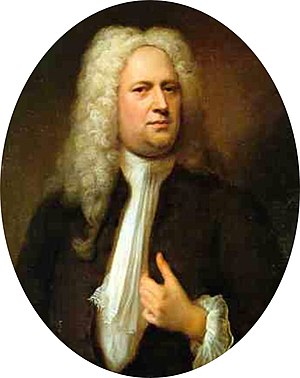
Baroque music of the British Isles bridged the gap between the early music of the Medieval and Renaissance periods and the development of fully fledged and formalised orchestral classical music in the second half of the eighteenth century. It was characterised by more elaborate musical ornamentation, changes in musical notation, new instrumental playing techniques and the rise of new genres such as opera. Although the term Baroque is conventionally used for European music from about 1600, its full effects were not felt in Britain until after 1660, delayed by native trends and developments in music, religious and cultural differences from many European countries and the disruption to court music caused by the Wars of the Three Kingdoms and Interregnum.[1] Under the restored Stuart monarchy the court became once again a centre of musical patronage, but royal interest in music tended to be less significant as the seventeenth century progressed, to be revived again under the House of Hanover. The Baroque era in British music can be seen as one of an interaction of national and international trends, sometimes absorbing continental fashions and practices and sometimes attempting, as in the creation of ballad opera, to produce an indigenous tradition. However, arguably the most significant British composer of the era, George Frideric Handel, was a naturalised German, who helped integrate British and continental music and define the future of music in the United Kingdom.
- ^ J. P. Wainright, 'England ii, 1603–1642' in J. Haar, ed., European Music, 1520–1640 (Woodbridge: Boydell, 2006), pp. 509–21.
